|
| Professor Fanny M. Cheung, SBS, OBE, JP |
Emeritus Professor of Psychology, CUHK
Honorary Senior Advisor, Hong Kong Institute of Asia-Pacific Studies, CUHK |
Books/Monographs |
| Books |
| 19. | Cheung, F. M., & Hong, Y. Y. (Eds.). (2021). Green finance, sustainable development and the Belt and Road Initiative. Abingdon, UK: Routledge.  | 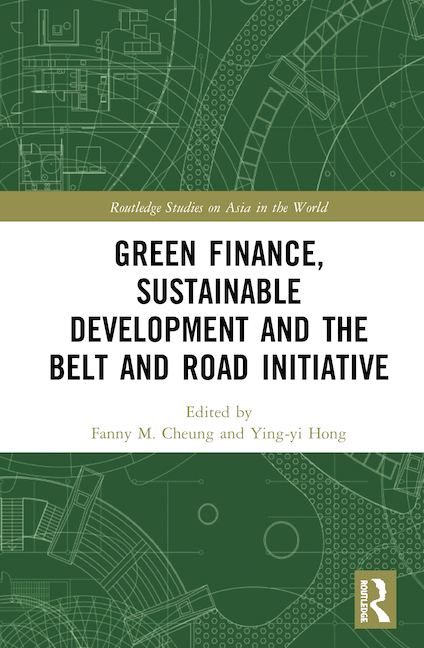 |
| 18. | Cheung, F. M., & Halpern, D. F. (Eds.). (2020). The Cambridge handbook of the international psychology of women. Cambridge, UK: Cambridge University Press.  | 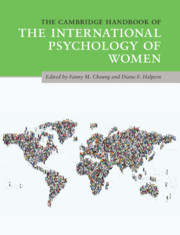 |
| 17. | Cheung, F. M., & Hong, Y. Y. (Eds.). (2019). Regional connection under the Belt and Road Initiative: The prospects for economic and financial cooperation. Abingdon, UK: Routledge.  | 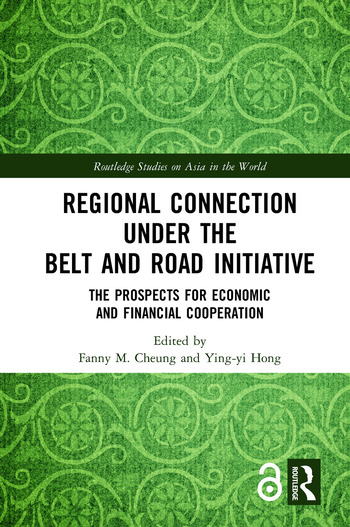 |
| 16. | Leong, F. T. L., Bartram, D., Cheung, F. M., Geisinger, K. F., & Iliescu, D. (Eds.). (2016). The ITC international handbook of testing and assessment. New York: Oxford University Press. (Received the Ursula Gielen Global Psychology Book Award from the Division of International Psychology of the American Psychological Association, 2017.)  | 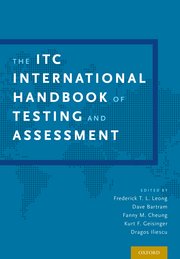 |
| 15. | Cheung, F. M., Woo, J., & Law, C. K. (Eds.). (2013).
Health systems: Challenges, visions, and reforms from a comparative global perspective.
Hong Kong: Hong Kong Institute of Asia-Pacific Studies, The Chinese University of Hong Kong.
 | 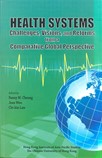 |
| 14. | 蔡玉萍、張妙清(編)。(2013)。
《她者:香港女性的現況與挑戰》。香港:商務印書館。  | 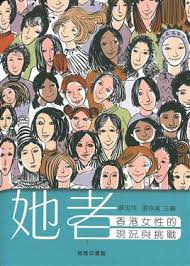 |
| 13. | Martin, P. R., Cheung, F. M., Knowles, M. C., Kyrios, M., Littlefield, L., Overmier, J. B., & Prieto, J. M. (Eds.). (2011). IAAP handbook of applied psychology. Chichester, UK: Wiley-Blackwell.  | 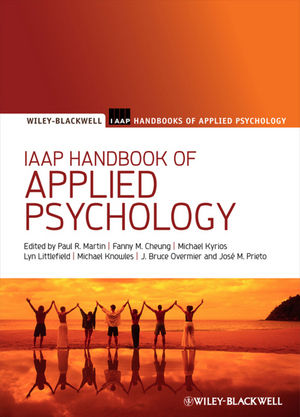 |
| 12. | 張妙清、賀戴安。(2009)。《登上巔峰的女性》(張妙清、陳雪飛譯)。香港:三聯書店。  | 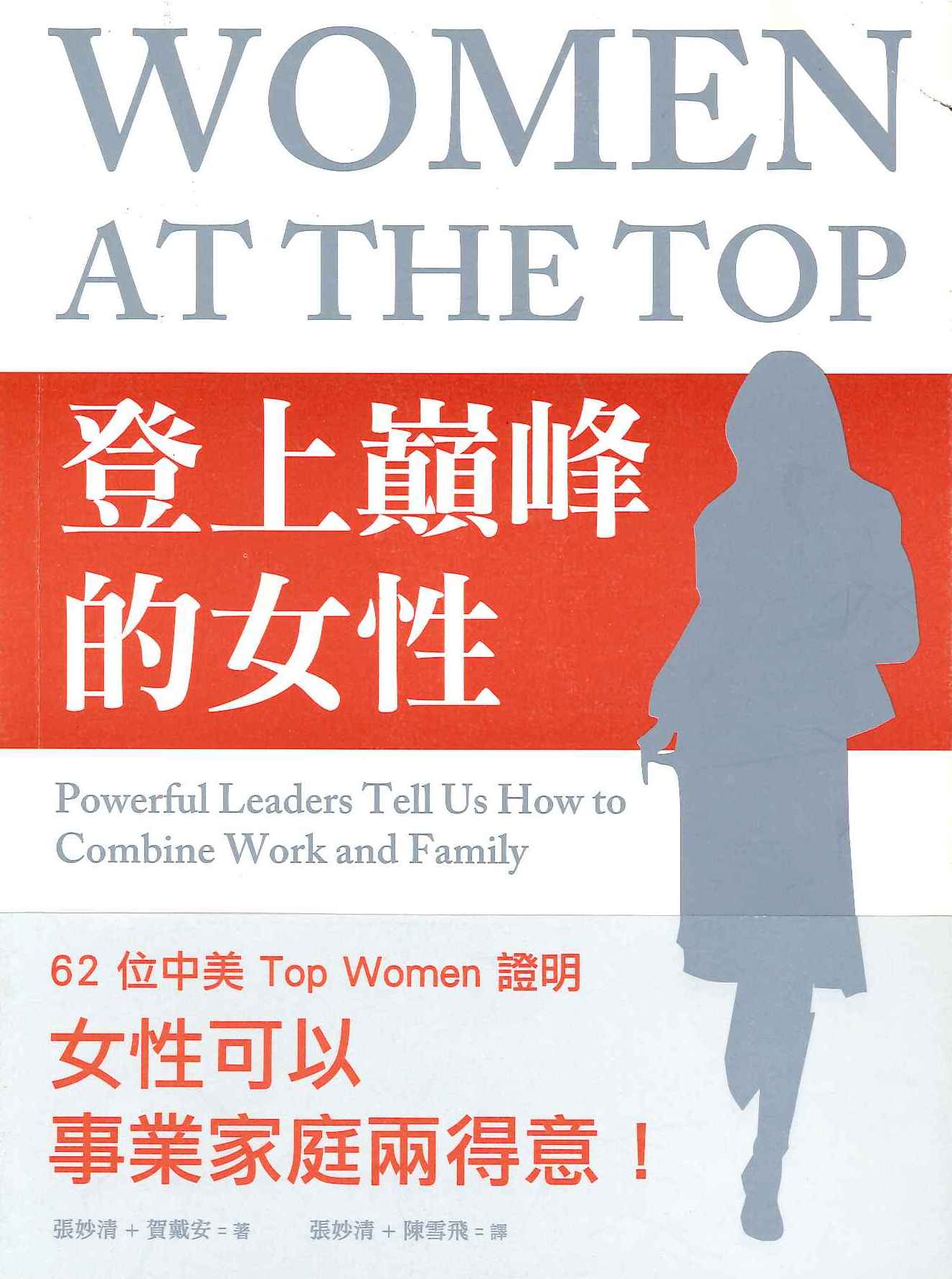 |
| 11. | Cheung, F. M., & Holroyd, E. (Eds.). (2009). Mainstreaming gender in Hong Kong society. Hong Kong: The Chinese University Press.  | 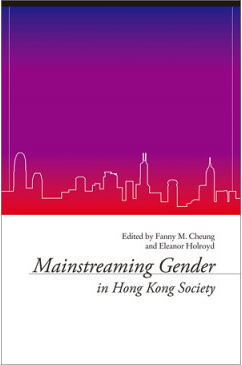 |
| 10. | Halpern, D. F., & Cheung, F. M. (2008). Women at the top: Powerful leaders tell us how to combine work and family. Chichester, UK: Wiley-Blackwell.  |  |
| 9. | Cheung, F. M., & Butcher, J. N. (2008). Cross-cultural application of the MMPI-2 and the adaptation of the Minnesota Report Computer System for the MMPI-2 in Hong Kong. Hong Kong: The Chinese University Press.  | 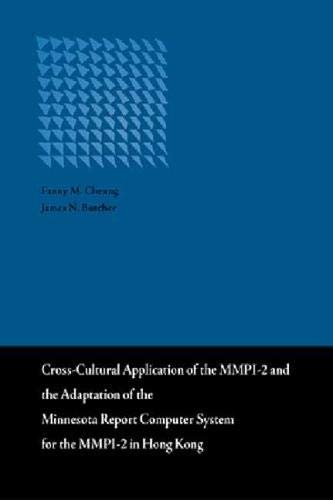 |
| 8. | Cheung, F. M., Zhang, J., & Song, W. (2003). Manual of the Minnesota Multiphasic Personality Inventory-2 (MMPI-2): Chinese edition. Hong Kong: The Chinese University Press. | |
| 7. | 張妙清(編)。(2001)。《教育改革與香港:新紀元、新挑戰》。香港:香港中文大學社會科學及教育硏究小組。 |  |
| 6. | Cheung, F. M., Karlekar, M., De Dios, A., Vichit-Vadakan, J., & Quisumbing, L. R.(Eds.). (1999). Breaking the silence: Violence against women in Asia. Hong Kong: Equal Opportunities Commission. |  |
| 5. | Cheung, F. M. (1999). Breaking new ground: Promoting equal opportunities in Hong Kong. Hong Kong: Equal Opportunities Commission. | 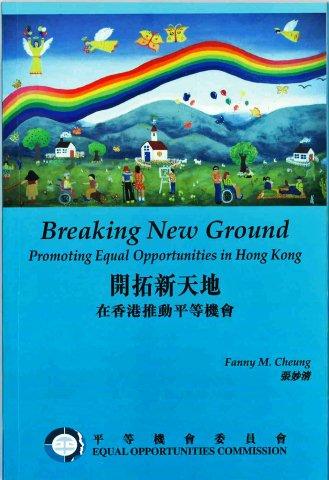 |
| 4. | Cheung, F. M. (Ed.). (1997). EnGendering Hong Kong society: A gender perspective of women’s status. Hong Kong: The Chinese University Press.  | 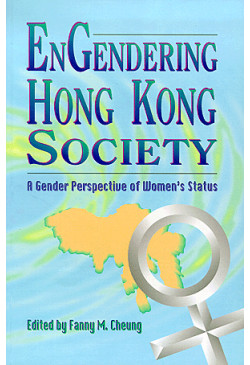 |
| 3. | 張妙清、葉漢明、郭佩蘭(編)。(1995)。《性別學與婦女研究:華人社會的探索》。香港:中文大學出版社。  | 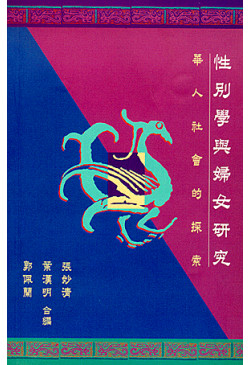 |
| 2. | Cheung, F. M. (1995). Administration manual of the Minnesota Multiphasic Personality Inventory (MMPI): Chinese edition. Hong Kong: The Chinese University Press. | |
| 1. | 張妙清等(編)。(1982)。《中譯心理學詞彙》。香港:中文大學出版社。 |  |
| Monographs |
| 11. | 張妙清(編)。(2018)。《客家人 客家事》。
香港:香港中文大學香港亞太研究所,研究叢刊第107號。
 |  |
| 10. | 張妙清、趙永佳(編)。(2017)。
《香港特區二十年》。香港:香港中文大學香港亞太研究所,研究叢刊第106號。
 |  |
| 9. | 趙永佳、張妙清(編)。(2015)。
《吐露爭鳴:二零一四時事論叢》。香港:香港中文大學香港亞太研究所,研究叢刊第99號。
 |  |
| 8. | 張妙清、黃紹倫、尹寶珊、鄭宏泰(編)。(2014)。
《構建澳門未來》。香港:香港中文大學香港亞太研究所,研究叢刊第97號。
 |  |
| 7. | Choi, S. Y. P., & Cheung, F. M. (Eds.). (2012).
Women and girls in Hong Kong: Current situations and future challenges.
Hong Kong: Research monograph no. 95, Hong Kong Institute of Asia-Pacific Studies, The Chinese University of Hong Kong.
 |  |
| 6. | 鄭宏泰、尹寶珊、張妙清。(2013)。
《問鼎特首:民意調查與分析》。香港:香港中文大學香港亞太研究所,研究叢刊第96號。
 | 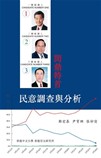
|
| 5. | 張妙清、黃紹倫、尹寶珊、鄭宏泰(編)。(2011)。
《澳門特區新貌:十年發展與變化》。香港:香港中文大學香港亞太研究所,研究叢刊第90號。
 | 
|
| 4. | Cheung, F. M., Tam, S. M., & Chu, S. S. H. (Eds.). (1998).
A bibliography of gender studies in Hong Kong: 1991–1997. Hong Kong: Research monograph no. 41, Hong Kong Institute of Asia-Pacific Studies, The Chinese University of Hong Kong.
|
| 3. | Westwood, R., Mehrain, T., & Cheung, F. M. (1995). Gender and society in Hong Kong: A statistical profile.
Hong Kong: Research monograph no. 23, Hong Kong Institute of Asia-Pacific Studies, The Chinese University of Hong Kong.
|
| 2. | Cheung, F. M., Wan, P. S., Shum, C. C., Wan, O. C., & Choy, L. M. (Eds.). (1991).
A bibliography of gender studies in Hong Kong (1991 edition).
Hong Kong: Research monograph no. 5, Hong Kong Institute of Asia-Pacific Studies, The Chinese University of Hong Kong.
 |
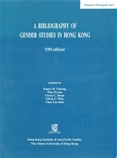
|
| 1. | Cheung, F. M., Wan, P. S., Choi, H. K., & Choy, L. M. (Eds.). (1991).
Selected papers of the Conference on Gender Studies in Chinese Societies.
Hong Kong: Research monograph no. 3, Hong Kong Institute of Asia-Pacific Studies, The Chinese University of Hong Kong.
 |

|
Books published under Committee on Women’s Studies in Asia (of which I was a member of the Editorial Committee): |
| | Committee on Women’s Studies in Asia (Ed.). (1995). Search for equality: Resources on women in Asia. New York: United Board for Christian Higher Education in Asia. | 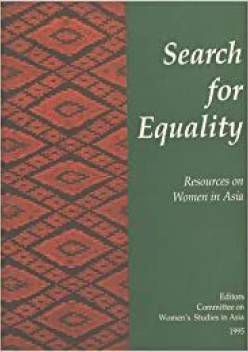 |
| | Committee on Women’s Studies in Asia (Ed.). (1994). Women’s studies women’s lives: Theory and practice in South and Southeast Asia. New Delhi, India: Kali for Women; North Melbourne, Australia: Spinifex. [Also published as Committee on Women’s Studies in Asia (Ed.). (1995). Changing lives: Life stories of Asian pioneers in women’s studies. New York: The Feminist Press.] | 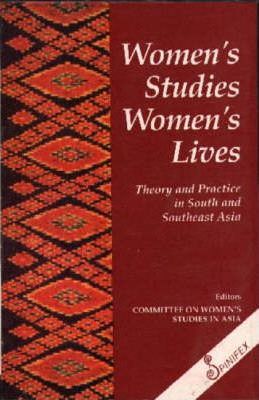 |
 |
|
| Book Chapters |
| 61. | Laher, S. & Cheung, F. M. (2022). The cultural perspective in personality and psychopathology assessment.
In J. L. Mihura (Ed.). The Oxford handbook of personality and psychopathology assessment, Second edition (2 ed.). Oxford University Press.
DOI: 10.1093/oxfordhb/9780190092689.013.6
 |
| 60. | Cheung, F. M., & Ho, Y. W. (2021). Assessing personality from a cultural perspective. In P. Graf & D. J. A. Dozois (Eds.), Handbook on the state of the art in applied psychology (pp. 341–355). Hoboken, NJ: John Wiley & Sons.  |
| 59. | Cheung, F. M., & Halpern, D. F. (2020). International and intersectional perspectives on the psychology of women. In F. M. Cheung & D. F. Halpern (Eds.), The Cambridge handbook of the international psychology of women (pp. 3–13). Cambridge, UK: Cambridge University Press.  |
| 58. | Laher, S., Cheung, F. M., & Zeinoun, P. (2020). Gender and personality research in psychology: The need for intersectionality. In F. M. Cheung & D. F. Halpern (Eds.), The Cambridge handbook of the international psychology of women (pp. 167–178). Cambridge, UK: Cambridge University Press.  |
| 57. | Halpern, D. F., & Cheung, F. M. (2020). Parting thoughts. In F. M. Cheung & D. F. Halpern (Eds.), The Cambridge handbook on the international psychology of women (pp. 543–546). Cambridge, UK: Cambridge University Press.  |
| 56. | Cheung, F. M., & Ho, Y. W. (2018). Culturally relevant personality assessment. In K. Shigemasu, S. Kuwano, T. Sato, & T. Matsuzawa (Eds.), Diversity in harmony: Insights from psychology (pp. 211–229). Hoboken, NJ: Wiley.  |
| 55. | Cheung, F. M., & Mak, W. W. S. (2018). Sociocultural factors in psychopathology. In J. N. Butcher & J. M. Hooley (Eds.), APA handbook of psychopathology, Volume 1: Psychopathology — Understanding, assessing and treating adult mental disorders (pp. 127–147). Washington, DC: American Psychological Association.  |
| 54. | Cheung, F. M., Fan, W., & Cheung, S. F. (2017). Indigenous measurement of personality in Asia. In A. T. Church (Ed.). The Praeger handbook of personality across cultures, Volume 1: Trait psychology across cultures (pp. 105–135). Santa Barbara, CA: Praeger.  |
| 53. | Cheung, F. M. (2017). My life story: My quest for cultural relevance in psychology. In J. M. Casas, L. A. Suzuki, C. M. Alexander, & M. A. Jackson (Eds.), Handbook of multicultural counseling (4th Ed.) (pp. 81–87). Thousand Oaks, CA: Sage.  |
| 52. | Cheung, F. M., & Tang, C. S. K. (2017). Women’s lives in contemporary Chinese societies.
In C. M. Brown, U. P. Gielen, J. L. Gibbons, & J. Kuriansky (Eds.), Women's evolving lives: Global and psychosocial perspectives (pp. 19–38).
Cham, Switzerland: Springer International Publishing.
 |
| 51. | Cheung, F. M., & Fetvadjiev, V. H. (2016). Indigenous approaches to testing and assessment. In F. T. L. Leong, D. Bartram, F. M. Cheung, K. F. Geisinger, & D. Iliescu (Eds.), The ITC international handbook of testing and assessment (pp. 333–346). New York: Oxford University Press.  |
| 50. | Leong, F. T. L., Bartram, D., Cheung, F. M., Geisinger, K. F., & Iliescu, D. (2016). Introduction. In F. T. L. Leong, D. Bartram, F. M. Cheung, K. F. Geisinger, & D. Iliescu (Eds.), The ITC international handbook of testing and assessment (pp. 3–13). New York: Oxford University Press.  |
| 49. | 張妙清。(2016)。為婦女發聲而設的跨界別全面方案:以性騷擾為例。載北京大學亞洲–太平洋研究院(編),《亞太研究論叢:第十二輯》(頁236–244)。北京:北京大學出版社。 |
| 48. | Liu, H., & Cheung, F. M. (2015). Crossover effects in work-family interface among Chinese dual-earner couples. In L. Lu & C. L. Cooper (Eds.), Handbook of research on work-life balance in Asia (pp. 77–98). Cheltenham, UK: Edward Elgar.  |
| 47. | 鄭宏泰、張妙清、黃子為。(2014)。青年的政治觀念。
載張妙清、黃紹倫、尹寶珊、鄭宏泰(編),《構建澳門未來》(頁215–246)。
香港:香港中文大學香港亞太研究所,研究叢刊第97號。.
 |
| 46. | Cheung, F. M., & Liu, H. M. (2014).
Integrating work and family: Lessons from women leaders and others.
In S. Copper & K. Ratele (Eds.), Psychology serving humanity: Proceedings of the 30th International Congress of Psychology, Volume 1: Majority world psychology (pp. 138–155). New York: Psychology Press.  |
| 45. | Cheung, S. F., Cheung, F. M., & Fan, W. (2013). From Chinese to cross-cultural personality inventory: A combined emic-etic approach to the study of personality in culture. In M. J. Gelfand, C. Y. Chiu, & Y. Y. Hong (Eds.), Advances in culture and psychology, Volume 3 (pp. 117–179). New York: Oxford University Press.  |
| 44. | Cheung, F. M., & Law, C. K. (2013).
Health care reform in Hong Kong. In F. M. Cheung, J. Woo, & C. K. Law (Eds.),
Health systems: Challenges, visions, and reforms from a comparative global perspective (pp. 183–205).
Hong Kong: Hong Kong Institute of Asia-Pacific Studies, The Chinese University of Hong Kong.
 |
| 43. | Cheung, F. M., & Lee, E. W. Y. (2012).
Women in power and decision making. In S. Y. P. Choi & F. M. Cheung (Eds.),
Women and girls in Hong Kong: Current situations and future challenges (pp. 191–221).
Hong Kong: Research monograph no. 95, Hong Kong Institute of Asia-Pacific Studies, The Chinese University of Hong Kong.
 [Also published in Chinese: 張妙清、李詠怡。(2013)。女性權力與決策。
載蔡玉萍、張妙清(編),《她者:香港女性的現況與挑戰》(頁 157–181)。香港:商務印書館。]
[Also published in Chinese: 張妙清、李詠怡。(2013)。女性權力與決策。
載蔡玉萍、張妙清(編),《她者:香港女性的現況與挑戰》(頁 157–181)。香港:商務印書館。]
 |
| 42. | Cheung, F. M., Fan, W., & Yao, J. (2012). Chinese personality and vocational behavior. In X. Huang & M. H. Bond. (Eds.), Handbook of Chinese organizational behavior: Integrating theory, research, and practice (pp. 359–379). Cheltenham, UK: Edward Elgar.  |
| 41. | Mak, W. W. S., Cheung, F. M., & Leung, F. (2012). Somatoform disorders in Asians. In E. C. Chang (Ed.), Handbook of adult psychopathology in Asians: Theory diagnosis, and treatment (pp. 179–203). New York: Oxford University Press.  |
| 40. | 陳雪飛、張妙清。(2012)。女性領導者融合家庭內外的跨文化比較。載岳素蘭、魏國英(編),《女性:人力資源與開發》(頁188–205)。北京:北京大學出版社。 |
| 39. | Chen, X. F., & Cheung, F. M. (2011). Feminist psychology in China. In A. Rutherford, R. Capdevila, V. Undurti, & I. Palmary (Eds.), Handbook of international feminisms: Perspectives on psychology, women, culture, and rights (pp. 269–292). New York: Springer.  |
| 38. | Cheung, F. M., Zhang, J., & Cheung, S. F. (2010). From indigenous to cross-cultural personality: The case of the Chinese Personality Assessment Inventory. In M. H. Bond (Ed.), The Oxford handbook of Chinese psychology (pp. 295–308). New York: Oxford University Press.  |
| 37. | Cheung, F. M. (2009). The cultural perspective in personality assessment. In J. N. Butcher (Ed.), Oxford handbook of personality assessment (pp. 44–56). New York: Oxford University Press.  |
| 36. | Cheung, F. M. (2009). Introduction. In F. M. Cheung & E. Holroyd (Eds.), Mainstreaming gender in Hong Kong society (pp. 1–21). Hong Kong: The Chinese University Press.  |
| 35. | Cheung, F. M., & Chung, P. C. (2009). Central mechanisms: The Equal Opportunities Commission and The Women’s Commission. In F. M. Cheung & E. Holroyd (Eds.), Mainstreaming gender in Hong Kong society (pp. 369–400). Hong Kong: The Chinese University Press.  |
| 34. | Cheung, F. M. (2006). A combined emic-etic approach to cross-cultural personality test development: The case of the CPAI. In Q. Jing, M. R. Rosenzweig, G. d’Ydewalle, H. Zhang, H. C. Chen, & K. Zhang (Eds.), Progress in psychological science around the world, Volume 2: Social and applied issues (pp. 91–103). Hove, UK: Psychology Press.  |
| 33. | Cheung, F. M., Gan, Y., & Lo, P. (2005). Personality and psychopathology: Insight from Chinese studies. In W. S. Tseng, S. C. Chang, & M. Nishizono (Eds.), Asian culture and psychotherapy: Implications for east and west (pp. 21–39). Honolulu, HI: University of Hawaii Press.  |
| 32. | Sung, Y. W., & Cheung, F. M. (2003). Catching SARS in the HKSAR: Fallout on economy and community. In T. Koh, A. Plant, & E. H. Lee (Eds.), The new global threat: Severe Acute Respiratory Syndrome and its impacts (pp.147–163). Singapore: World Scientific Publishing.  |
| 31. | Cheung, F. M., & Cheung, S. F. (2003). Measuring personality and values across cultures: Imported versus indigenous measures. In W. J. Lonner, D. L. Dinnel, S. A. Hayes, & D. N. Sattler (Eds.), Online readings in psychology and culture (Unit 4, Subunit 4, Article 5). Bellingham, WA: Center for Cross-Cultural Research, Western Washington University.  |
| 30. | Cheung, F. M. (2002). Universal and indigenous dimensions of Chinese personality. In K. S. Kurasaki, S. Okazaki, & S. Sue (Eds.), Asian American mental health: Assessment theories and methods (pp. 141–157). New York: Kluwer Academic/Plenum Publishers.  |
| 29. | Cheung, F. M. (2002). Ageing population and gender issues. In Y. M. Yeung (Ed.), New challenges for development and modernization: Hong Kong and the Asia-Pacific region in the new millennium (pp. 207–223). Hong Kong: The Chinese University Press.  |
| 28. | Cheung, F. M., De Dios, A., Karlekar, M., & Vichit-Vadakan, J. (1999). Introduction: Violence against women as a global concern. In F. M. Cheung, M. Karlekar, A. De Dios, J. Vichit-Vadakan, & L. R. Quisumbing (Eds.), Breaking the silence: Violence against women in Asia (pp. 2–12). Hong Kong: Equal Opportunities Commission. |
| 27. | Tang, C. S., Lee, A., & Cheung, F. M. (1999). Violence against women in Hong Kong. In F. M. Cheung, M. Karlekar, A. De Dios, J. Vichit-Vadakan, & L. R. Quisumbing (Eds.), Breaking the silence: Violence against women in Asia (pp. 38–58). Hong Kong: Equal Opportunities Commission. |
| 26. | Cheung, F. M. (1999). The gender dimension in the social sciences. In A. Kazancigil & D. Makinson (Eds.), World social science report 1999 (pp. 220–225). Paris: UNESCO Publishing/Elsevier.  |
| 25. | 張妙清。(1998)。香港兩性平等狀況之研究。載香港青年協會(編),《香港青年研究論壇論文集》(頁59–65)。香港:香港青年協會。 |
| 24. | Cheung, F. M. (1998). Promoting equal opportunities for women and the disabled in Hong Kong. In S. MacPherson & H. K. Wong (Eds.), Social development and societies in transition (pp. 55–64). Aldershot, UK: Ashgate. |
| 23. | Cheung, F. M. (1998). Cross-cultural psychopathology.
In A. S. Bellack & M. Hersen (Eds.), Comprehensive clinical psychology, Volume 10: Sociocultural and individual differences (pp. 35–51).
New York: Pergamon.  |
| 22. | Leung, K., Cheung, F. M., Zhang, J., Song, W., & Xie, D. (1997). The five-factor model of personality in China. In K. Leung, U. Kim, S. Yamaguchi, & Y. Kashima (Eds.), Progress in Asian social psychology, Volume 1 (pp. 231–244). Singapore: John Wiley. |
| 21. | Cheung, F. M. (1997). Introduction. In F. M. Cheung (Ed.), EnGendering Hong Kong society: A gender perspective of women’s status (pp. 1–12). Hong Kong: The Chinese University Press.  |
| 20. | Cheung, F. M., Lai, B. L. L., Au, K. C., & Ngai, S. S. (1997). Gender role identity, stereotypes, and attitudes in Hong Kong. In F. M. Cheung (Ed.), EnGendering Hong Kong society: A gender perspective of women’s status (pp. 201–235). Hong Kong: The Chinese University Press.  |
| 19. | Lai, B. L. L., Au, K. C., & Cheung, F. M. (1997). Women’s concern groups in Hong Kong. In F. M. Cheung (Ed.), EnGendering Hong Kong society: A gender perspective of women’s status (pp. 267–305). Hong Kong: The Chinese University Press.  |
| 18. | Cheung, F. M., Leung, K., Zhang, J., Song, W., & Xie, D. (1996). Chinese personality and social change. In M. Brosseau, S. Pepper, & S. K. Tsang (Eds.), China review 1996 (pp. 343–366). Hong Kong: The Chinese University Press.  [Also published in Chinese: 張妙清、梁覺、張建新、宋維真、謝東。(1996)。中國人的人格與社會變遷。載汪丁丁(編),《中國評論:一九九六》(頁321–342)。香港:中文大學出版社。] [Also published in Chinese: 張妙清、梁覺、張建新、宋維真、謝東。(1996)。中國人的人格與社會變遷。載汪丁丁(編),《中國評論:一九九六》(頁321–342)。香港:中文大學出版社。]  |
| 17. | 張妙清、張建新、宋維真。(1996)。從心理測驗看華人的性格:(一)量表的運用。載曾文星(編),《華人的心理與治療》(頁89–123)。台北:桂冠圖書公司。 |
| 16. | 宋維真、張妙清、謝東。(1996)。從心理測驗看華人的性格:(二)測量結果。載曾文星(編),《華人的心理與治療》(頁125–146)。台北:桂冠圖書公司。 |
| 15. | Cheung, F. M. (1996). Gender role development. In S. Lau (Ed.), Growing up the Chinese way: Chinese child and adolescent development (pp. 45–67). Hong Kong: The Chinese University Press.  |
| 14. | Cheung, F. M., Song, W., & Zhang, J. (1996). The Chinese MMPI-2: Research and applications in Hong Kong and the People’s Republic of China. In J. N. Butcher (Ed.), International adaptations of the MMPI-2: Research and clinical applications (pp. 137–161). Minneapolis, MN: University of Minnesota Press.  |
| 13. | Cheung, F. M. (1996). The assessment of psychopathology in Chinese societies. In M. H. Bond (Ed.), The handbook of Chinese psychology (pp. 393–411). Hong Kong: Oxford University Press. |
| 12. | 張妙清。(1995)。性別研究在香港的蛻變。載張妙清、葉漢明、郭佩蘭(編),《性別學與婦女研究:華人社會的探索》(頁57–73)。香港:中文大學出版社。  |
| 11. | Cheung, F. M. (1995). Facts and myths about somatization among the Chinese. In T. Y. Lin, W. S. Tseng, & E. K. Yeh (Eds.), Chinese societies and mental health (pp. 156–166). Hong Kong: Oxford University Press. |
| 10. | Cheung, F. M., Wan, P. S., & Wan, O. C. (1994).
The underdeveloped political potential of women in Hong Kong. In B. J. Nelson & N. Chowdhury (Eds.),
Women and politics worldwide (pp. 326–346). New Haven, CT: Yale University Press.
 |
| 9. | Cheung, F. M. (1994). Promoting women’s development in Hong Kong. In Committee on Women’s Studies in Asia (Ed.), Women’s studies women’s lives: Theory and practice in South and Southeast Asia (pp. 60–73). New Delhi, India: Kali for Women; North Melbourne, Australia: Spinifex. [Also published as Committee on Women’s Studies in Asia (Ed.). (1995). Changing lives: Life stories of Asian pioneers in women’s studies. New York: The Feminist Press.]  |
| 8. | Cheung, F. M. (1991). Health psychology in Chinese societies in Asia. In M. Jansen & J. Weinman (Eds.), The international development of health psychology (pp. 63–74). Readings, UK: Harwood Academic. |
| 7. | Cheung, F. M., Lam, M. C., & Chau, B. T. W. (1990). Caregiver’s techniques and pre-school children’s behavior in Hong Kong. In B. P. K. Chan, with M. Smilansky (Ed.), Early childhood toward the 21st Century: A worldwide perspective (pp. 403–412). Hong Kong: Yew Chung Education Publishing. |
| 6. | Cheung, F. M. (1986). Psychopathology among Chinese people. In M. H. Bond (Ed.), The psychology of the Chinese people (pp. 171–212). Hong Kong: Oxford University Press. |
| 5. | 張妙清。(1985)。中譯明尼蘇達多向性格測量表在香港應用的相等性的確定。載邢慕寰、金耀基(編),《香港之發展經驗》(頁269–278)。香港:中文大學出版社。 |
| 4. | Cheung, F. M. (1985). Cross-cultural considerations for the translation and adaptation of the Chinese MMPI in Hong Kong. In J. N. Butcher & C. D. Spielberger (Eds.), Advances in personality assessment, Volume 4 (pp. 131–158). Hillsdale, NJ: Lawrence Erlbaum Associates. |
| 3. | Cheung, F. M. (1985). An overview of psychopathology in Hong Kong with special reference to somatic presentation. In W. S. Tseng & D. Y. H. Wu (Eds.), Chinese culture and mental health (pp. 287–304). New York: Academic Press. |
| 2. | 張妙清。(1981)。精神健康與文娛生活。載李沛良、劉兆佳(編),《人民公社與農村發展:台山縣斗山公社的經驗》(頁97–113)。香港:中文大學出版社。 |
| 1. | Cheung, F. M. (1981). Public education and promotion of mental health in Hong Kong. In T. P. Khoo (Ed.), Aspects of mental health care, Hong Kong: 1981 (pp. 118–123). Hong Kong: Mental Health Association of Hong Kong. |
 |
|
| Journal Special Section |
| 2. | Di Fabio, A., Cheung, F. M., & Peiró, J. (Issue Editors). (2020). Special issue: Personality and individual differences and healthy organizations. Personality and Individual Differences, 166.  |
| 1. | Cheung, F. M., Leong, F. T. L., & Ben-Porath, Y. S. (Section Editors). (2003). Special section: Psychological assessment in Asia. Psychological Assessment, 15 (3), 243–310.  |
 |
|
| Journal Articles |
| 119. | 周明洁、李府桂、穆蔚琦、范为桥、张建新、张妙清。(2023)。
外圆内方:中国人人际关系性的潜在剖面结构及其适应性。《心理学报》,55 (3),390-405。
 |
| 118. | Zhou, M. J., Huang, D., Ren, F, Fan, W. Q., Mu, W., Li, F., Zhang, J. X., & Cheung, F. M. (2021).
Short forms of the Cross-cultural (Chinese) Personality Assessment Inventory (CPAI-2): Reliability, validity, and measurement invariance across gender.
Frontiers in Psychology, 15 December 2021.
 |
| 117. | Gan, Y., Zheng, L., He, X, Cheung, F. M. (2019).
Interpersonal relatedness and temporal discounting. Journal of Social and Personal Relationships, 36 (6), 1695-1714.
 |
| 116. | Li, M., Fan, W., Cheung, F. M., & Wang, Q. (2019). Reciprocal associations between career self-efficacy and vocational identity: A three-wave longitudinal study. Journal of Career Assessment, 27 (4), 645–660.
 |
| 115. | Wang, J., Fan, W., Cheung, F. M., Wang, Q., & Li, M. (2019). Personality and Chinese adolescents’ career exploration: The mediation effects of self-efficacy and perceived parental support. Journal of Pacific Rim Psychology, 13, e28.  |
| 114. | Li, M., Fan, W., Chen, X., & Cheung, F. M. (2019). Independent and interdependent personalities at individual and group levels: Predicting loneliness in Chinese adolescents. Personality and Individual Differences, 147, 85–90.  |
| 113. | Li, M., Fan, W., Cheung, F. M., & Wang, Q. (2018). Could meaning in life contribute to adolescents’ vocational commitment and identity? A longitudinal analysis in different Chinese cultures. Journal of Pacific Rim Psychology, 12, e36.  |
| 112. | Chan, R. C. H., Mak, W. W. S., Pang, I. H. Y., Wong, S. Y. S., Tang, W. K., Lau, J. T. F., Woo, J., Lee, D. T. F., & Cheung, F. M. (2018). Utility and cost-effectiveness of motivational messaging to increase survey response in physicians: A randomized controlled trial. Field Methods, 30 (1), 37–55.  |
| 111. | Xie, Q., Fan, W., Wong, P., & Cheung, F. M. (2016). Personality and parenting style as predictors of life satisfaction among Chinese secondary students. The Asia-Pacific Education Researcher, 25 (3), 423–432.  |
| 110. | Fan, W., Li, M., & Cheung, F. M. (2016). Could career-relevant parental support predict students’ career explorations? Mediation effects of career self-efficacy. International Journal of Psychology, 51 (Supplement 1), 751.  |
| 109. | Fan, W., Zhou, M., Cheung, F. M., Zhang, J., & Zhou, X. (2016). Contributions of resilience to mental health in Chinese secondary school students at different disaster stress levels. The Asia-Pacific Education Researcher, 25 (3), 389–398.  |
| 108. | Liu, H., Ngo, H. Y., & Cheung, F. M. (2016). Work-family enrichment and marital satisfaction among Chinese couples: A crossover-spillover perspective. International Journal of Stress Management, 23 (2), 209–231.  |
| 107. | Mak, W. W. S., Cheung, F. M., Wong, S. Y. S., Tang, W. K., Lau, J. T. F., Woo, J., & Lee, D. T. F. (2015). Stigma towards people with psychiatric disorders. Hong Kong Medical Journal, 21 (Supplement 2), 9–12.  |
| 106. | Liu, H., & Cheung, F. M. (2015). Testing crossover effects in an actor-partner interdependence model among Chinese dual-earner couples. International Journal of Psychology, 50 (2), 106–114.  |
| 105. | Liu, H., & Cheung, F. M. (2015). The moderating role of empathy in the work-family crossover process between Chinese dual-earner couples. Journal of Career Assessment, 23 (3), 442–458.  |
| 104. | Fan, W., Cheung, F. M., Leong, F. T. L., & Cheung, S. F. (2014). Contributions of family factors to career readiness: A cross-cultural comparison. The Career Development Quarterly, 62 (3), 194–209.  |
| 103. | Zhang, D. X., Lewis, G., Araya, R., Tang, W. K., Mak, W. W. S., Cheung, F. M., Mercer, S. W., Griffiths, S. M., Woo, J., Lee, D. T. F., Kung, K., Lam, A. T., Yip, B. H. K., & Wong, S. Y. S. (2014). Prevention of anxiety and depression in Chinese: A randomized clinical trial testing the effectiveness of a stepped care program in primary care. Journal of Affective Disorders, 169, 212–220.  |
| 102. | Cheung, F. M., Wan, S. L. Y., Fan, W., Leong, F., & Mok, P. C. H. (2013). Collective contributions to career efficacy in adolescents: A cross-cultural study. Journal of Vocational Behavior, 83 (3), 237–244.  |
| 101. | Ho, M. Y., Chen, X., Cheung, F. M., Liu, H., & Worthington, E. L., Jr. (2013). A dyadic model of the work-family interface: A study of dual-earner couples in China. Journal of Occupational Health Psychology, 18 (1), 53–63.  |
| 100. | Ho, M. Y., Cheung, F. M., You, J., Kam, C., Zhang, X., & Kliewer, W. (2013). The moderating role of emotional stability in the relationship between exposure to violence and anxiety and depression. Personality and Individual Differences, 55 (6), 634–639.  |
| 99. | Cheung, F. M. (2012). Mainstreaming culture in psychology. American Psychologist, 67 (8), 721–730.  |
| 98. | Lai, C. M., Leung, F., You, J., & Cheung, F. M. (2012). Are DSM-IV-TR borderline personality disorder, ICD-10 emotionally unstable personality disorder, and CCMD-III impulsive personality disorder analogous diagnostic categories across psychiatric nomenclatures? Journal of Personality Disorders, 26 (4), 551–567.  |
| 97. | Ng, A., Fan, W., Cheung, F. M., Leong, F. T. L., & Cheung, S. F. (2012). The CPAI-2 as a culturally relevant personality measure in differentiating among academic major groups. Journal of Career Assessment, 20 (2), 196–207.  |
| 96. | Fan, W., Cheung, F. M., Leong, F. T. L., & Cheung, S. F. (2012). Personality traits, vocational interests, and career exploration: A cross-cultural comparison between American and Hong Kong students. Journal of Career Assessment, 20 (1), 105–119.  |
| 95. | 范為橋、張妙清、張建新、張樹輝。(2011)。兼顧文化共通性與特殊性的人格研究:CPAI及其跨文化應用。《心理學報》,43 (12),1418–1429。  |
| 94. | Cheung, F. M., van de Vijver, F. J. R., & Leong, F. T. L. (2011). Toward a new approach to the study of personality in culture. American Psychologist, 66 (7), 593–603.  |
| 93. | 陳雪飛、張妙清。(2011)。女性領導者融合家庭內外的跨文化比較。《婦女研究論叢》,2 (2),5–11。  |
| 92. | 曹慧、張妙清。(2010)。認同整合:自我和諧之路。《心理科學進展》,18 (12),1839–1847。  |
| 91. | Ho, M. Y., Cheung, F. M., & Cheung, S. F. (2010). The role of meaning in life and optimism in promoting well-being. Personality and Individual Differences, 48 (5), 658–663.  |
| 90. | Ho, M. Y., & Cheung, F. M. (2010). The differential effects of forms and settings of exposure to violence on adolescents’ adjustment. Journal of Interpersonal Violence, 25 (7), 1309–1337.  |
| 89. | Leong, F. T. L., Leung, K., & Cheung, F. M. (2010). Integrating cross-cultural psychology research methods into ethnic minority psychology. Cultural Diversity and Ethnic Minority Psychology, 16 (4), 590–597.  |
| 88. | Cheung, F. M. (2010). Sex discrimination in education: Interaction of ethical and contextual challenges in implementing equal opportunities in Hong Kong. Ethics and Behavior, 20 (3–4), 277–287.  |
| 87. | Cheung, F. M., & Halpern, D. F. (2010). Women at the top: Powerful leaders define success as work + family in a culture of gender. American Psychologist, 65 (3), 182–193.  |
| 86. | Byrne, B. M., Oakland, T., Leong, F. T. L., van de Vijver, F. J. R., Hambleton, R. K., Cheung, F. M., & Bartram, D. (2009). A critical analysis of cross-cultural research and testing practices: Implications for improved education and training in psychology. Training and Education in Professional Psychology, 3 (2), 94–105.  |
| 85. | Mak, W. W. S., Cheung, F. M., Woo, J., Lee, D., Li, P., Chan, K. S., & Tam, C. M. (2009). A comparative study of the stigma associated with infectious diseases (SARS, AIDS, TB). Hong Kong Medical Journal, 15 (Supplement 8), 34–37.  |
| 84. | Mak, W. W. S., Law, R. W., Woo, J., Cheung, F. M., & Lee, D. (2009). Social support and psychological adjustment to SARS: The mediating role of self-care self-efficacy. Psychology and Health, 24 (2), 161–174.  |
| 83. | Cheung, F. M. (2008). Relinking money and social support from a sociocultural perspective. Psychological Inquiry, 19 (3–4), 186–188.  |
| 82. | 范為橋、張妙清、張樹輝、梁覺。(2008)。香港中學生人格特質的性別差異及其發展性分析。《心理學報》,40 (9),1002–1012。  |
| 81. | 張妙清、范為橋、張樹輝、梁覺。(2008)。跨文化(中國人)個性測量表青少年版(CPAI-A)的香港標準化研究:兼顧文化共通性與特殊性的人格測量。《心理學報》,40 (7),839–852。  |
| 80. | Ho, M. Y., Cheung, F. M., & Cheung, S. F. (2008). Personality and life events as predictors of adolescents’ life satisfaction: Do life events mediate the link between personality and life satisfaction? Social Indicators Research, 89 (3), 457–471.  |
| 79. | Cheung, F. M., Cheung, S. F., & Leung, F. (2008). Clinical utility of the Cross-Cultural (Chinese) Personality Assessment Inventory (CPAI-2) in the assessment of substance use disorders among Chinese men. Psychological Assessment, 20 (2), 103–113.  |
| 78. | Cheung, F. M., Fan, W., & To, C. (2008). The Chinese Personality Assessment Inventory as a culturally relevant personality measure in applied settings. Social and Personality Psychology Compass, 2 (1), 74–89.  |
| 77. | Cheung, F. M., Cheung, S. F., Zhang, J., Leung, K., Leong, F., & Yeh, K. H. (2008). Relevance of openness as a personality dimension in Chinese culture. Journal of Cross-Cultural Psychology, 39 (1), 81–108.  |
| 76. | Cheung, F. M. (2007). Indigenous personality correlates from the CPAI-2 profiles of Chinese psychiatric patients. World Cultural Psychiatry Research Review, 2 (4), 114–117. |
| 75. | Cheung, S. F., Cheung, F. M., Howard, R., & Lim, Y. H. (2006). Personality across the ethnic divide in Singapore: Are “Chinese traits” uniquely Chinese? Personality and Individual Differences, 41 (3), 467–477.  |
| 74. | Mak, W. W. S., Mo, P. K. H., Cheung, R. Y. M., Woo, J., Cheung, F. M., & Lee, D. (2006). Comparative stigma of HIV/AIDS, SARS, and tuberculosis in Hong Kong. Social Science and Medicine, 63 (7), 1912–1922.  |
| 73. | Chen, S. X., Cheung, F. M., Bond, M. H., & Leung, J. P. (2006). Going beyond self-esteem to predict life satisfaction: The Chinese case. Asian Journal of Social Psychology, 9 (1), 24–35.  |
| 72. | Chen, S. X., Bond, M. H., & Cheung, F. M. (2006). Personality correlates of social axioms: Are beliefs nested within personality? Personality and Individual Differences, 40 (3), 509–519.  |
| 71. | Chen, S. X., Cheung, F. M., Bond, M. H., & Leung, J. P. (2005). Decomposing the construct of ambivalence over emotional expression in a Chinese cultural context. European Journal of Personality, 19 (3), 185–204.  |
| 70. | 林芳、周霞、張嵐、張妙清、梁耀堅、張樹輝。(2005)。抑鬱障礙患者與焦慮障礙患者的個性測定比較。《上海精神醫學》,17 (5),285–287。  |
| 69. | So, H. W., & Cheung, F. M. (2005). Review of Chinese sex attitudes and applicability of sex therapy for Chinese couples with sexual dysfunction. The Journal of Sex Research, 42 (2), 93–101.  |
| 68. | Cheung, F. M., Cheung, S. F., & Zhang, J. (2004). What is “Chinese” personality? Subgroup differences in the Chinese Personality Assessment Inventory (CPAI-2). Acta Psychologica Sinica, 36 (4), 491–499.  |
| 67. | Cheung, F. M., Cheung, S. F., & Zhang, J. (2004). Convergent validity of the Chinese Personality Assessment Inventory and the Minnesota Multiphasic Personality Inventory-2: Preliminary findings with a normative sample. Journal of Personality Assessment, 82 (1), 92–103.  |
| 66. | Cheung, F. M. (2004). Commentary: Reintegrating psychology into an expanded biopsychosocial model of severe acute respiratory syndrome. Asian Journal of Social Psychology, 7 (1), 83–88.  |
| 65. | Cheung, F. M. (2004). Use of Western and indigenously developed personality tests in Asia. Applied Psychology: An International Review, 53 (2), 173–191.  |
| 64. | Cheung, F. M., Leong, F. T. L., & Ben-Porath, Y. S. (2003). Psychological assessment in Asia: Introduction to the special section. Psychological Assessment, 15 (3), 243–247.  |
| 63. | Cheung, F. M., Cheung, S. F., Wada, S., & Zhang, J. (2003). Indigenous measures of personality assessment in Asian countries: A review. Psychological Assessment, 15 (3), 280–289.  |
| 62. | Butcher, J. N., Cheung, F. M., & Kim, J. (2003). Use of the MMPI-2 with Asian populations. Psychological Assessment, 15 (3), 248–256.  |
| 61. | Cheung, F. M., Cheung, S. F., Leung, K., Ward, C., & Leong, F. (2003). The English version of the Chinese Personality Assessment Inventory. Journal of Cross-Cultural Psychology, 34 (4), 433–452.  |
| 60. | Kwong, J. Y. Y., & Cheung, F. M. (2003). Prediction of performance facets using specific personality traits in the Chinese context. Journal of Vocational Behavior, 63 (1), 99–110.  |
| 59. | Cheung, F. M., Kwong, J. Y. Y., & Zhang, J. (2003). Clinical validation of the Chinese Personality Assessment Inventory. Psychological Assessment, 15 (1), 89–100.  |
| 58. | Tang, C. S. K., Lee, A. M., Tang, T., Cheung, F. M., & Chan, C. (2002). Role occupancy, role quality, and psychological distress in Chinese women. Women and Health, 36 (1), 49–66.  |
| 57. | Tang, C. S. K., Cheung, F. M., Chen, R., & Sun, X. (2002). Definition of violence against women: A comparative study in Chinese societies of Hong Kong, Taiwan, and the People’s Republic of China. Journal of Interpersonal Violence, 17 (6), 671–688.  |
| 56. | Tang, C. S. K., Pun, S. H., & Cheung, F. M. (2002). Responsibility attribution for violence against women: A study of Chinese public service professionals. Psychology of Women Quarterly, 26 (3), 175–185.  |
| 55. | Tang, C. S. K., Wong, D., & Cheung, F. M. (2002). Social construction of women as legitimate victims of violence in Chinese societies. Violence Against Women, 8 (8), 968–996.  |
| 54. | Cheung, F. M., Leung, K., Zhang, J. X., Sun, H. F., Gan, Y. Q., Song, W. Z., & Xie, D. (2001). Indigenous Chinese personality constructs: Is the five-factor model complete? Journal of Cross-Cultural Psychology, 32 (4), 407–433.  |
| 53. | 張建新、張妙清、梁覺。(2000)。殊化信任與泛化信任在人際信任行為路徑模型中的作用。《心理學報》,32 (3),311–316。  |
| 52. | Tang, C. S. K., Wong, D., Cheung, F. M., & Lee, A. (2000). Exploring how Chinese define violence against women: A focus group study in Hong Kong. Women’s Studies International Forum, 23 (2), 197–209.  |
| 51. | Yung, Y. F., Chan, W., Cheung, F. M., Leung, K., Law, J. S., & Zhang, J. X. (2000). Standardization of the Chinese Personality Assessment Inventory: The prototype standardization method and its rationale. Asian Journal of Social Psychology, 3 (2), 133–152.  |
| 50. | Cheung, F. M. (2000). Deconstructing counseling in a cultural context. The Counseling Psychologist, 28 (1), 123–132.  |
| 49. | Cheung, F. M. (2000). Deconstructing psychology in a Chinese context: A response to Weining Chang’s “In search of the Chinese in all the wrong places!”. Journal of Psychology in Chinese Societies, 1, 149–152. |
| 48. | 張妙清。(2000)。女性革命:廿一世紀兩性平等與女青年角色轉變趨勢。《青年研究學報》,3 (1),61–67。  |
| 47. | 張建新、宋維真、張妙清。(1999)。簡介新版明尼蘇達多相個性調查表(MMPI-2)及其在中國大陸和香港地區的標準化過程。《中國心理衛生雜誌》,13 (1),20–23。 |
| 46. | Cheung, F. M., & Leung, K. (1998). Indigenous personality measures: Chinese examples. Journal of Cross-Cultural Psychology, 29 (1), 233–248.  |
| 45. | Cheung, F. M. (1997). The development of clinical psychology in Hong Kong. Bulletin of the Hong Kong Psychological Society, 38/39, 95–109. |
| 44. | Cheung, F. M., & Ho, R. M. (1997). Standardization of the Chinese MMPI-A in Hong Kong: A preliminary study. Psychological Assessment, 9 (4), 499–502.  |
| 43. | Hill, J., Stuart, R. C., Fung, H. K., Ng, E. K. W., Cheung, F. M., Chung, S. C. S., & van Hasselt, C. A. (1997). Gastroesophageal reflux, motility disorders, and psychological profiles in the etiology of globus pharyngis. Laryngoscope, 107 (10), 1373–1377.  |
| 42. | Tang, C. S. K., & Cheung, F. M. (1997). Effects of gender and profession type on definitions of violence against women in Hong Kong. Sex Roles, 36 (11/12), 837–849.  |
| 41. | Cheung, F. M., Leung, K., Fan, R. M., Song, W. Z., Zhang, J. X., & Zhang, J. P. (1996). Development of the Chinese Personality Assessment Inventory. Journal of Cross-Cultural Psychology, 27 (2), 181–199.  |
| 40. | Tang, C. S. K., Yik, M. S. M., Cheung, F. M., Choi, P. K., & Au, K. C. (1996). Sexual harassment of Chinese college students. Archives of Sexual Behavior, 25 (2), 201–215.  |
| 39. | Tang, C. S. K., Yik, M. S. M., Cheung, F. M., Choi, P. K., & Au, K. C. (1995). How do Chinese college students define sexual harassment? Journal of Interpersonal Violence, 10 (4), 503–515.  |
| 38. | 宋維真、張建新、張建平、張妙清、梁覺。(1993)。編制中國人個性測量表(CPAI)的意義與程序。《心理學報》,25 (4),66–73。  |
| 37. | Ralston, D. A., Gustafson, D. J., Cheung, F. M., & Terpstra, R. H. (1993). Differences in managerial values: A study of U.S., Hong Kong and PRC managers. Journal of International Business Studies, 24 (2), 249–275.  |
| 36. | Ralston, D. A., Gustafson, D. J., Terpstra, R. H., Holt, D. H., Cheung, F. M., & Ribbens, B. A. (1993). The impact of managerial values on decision-making behaviour: A comparison of the United States and Hong Kong. Asia Pacific Journal of Management, 10 (1), 21–37.  |
| 35. | Ralston, D. A., Gustafson, D. J., Elsass, P. M., Cheung, F. M., & Terpstra, R. H. (1992). Eastern values: A comparison of managers in the United States, Hong Kong, and the People’s Republic of China. Journal of Applied Psychology, 77 (5), 664–671.  |
| 34. | Cheung, F. M., Zhao, J. C., & Wu, C. Y. (1992). Chinese MMPI profiles among neurotic patients. Psychological Assessment, 4 (2), 214–218.  |
| 33. | Lee, H. C. B., Cheung, F. M., Man, H. M., & Hsu, S. Y. C. (1992). Psychological characteristics of Chinese low back pain patients: An exploratory study. Psychology and Health, 6 (1–2), 119–128.  |
| 32. | Cheung, F. M., Song, W. Z., & Butcher, J. N. (1991). An infrequency scale for the Chinese MMPI. Psychological Assessment: A Journal of Consulting and Clinical Psychology, 3 (4), 648–653.  |
| 31. | Lee, H. C. B., & Cheung, F. M. (1991). The attitudes toward rape victims scale: Reliability and validity in a Chinese context. Sex Roles, 24 (9–10), 599–603.  |
| 30. | Cheung, F. M. (1991). Consciousness-raising of gender issues in clinical psychology training: A community psychology approach. Feminism and Psychology: An International Journal, 1 (1), 93–95.  |
| 29. | Cheung, F. M. (1990). People against the mentally ill: Community opposition to residential treatment facilities. Community Mental Health Journal, 26 (2), 205–212.  |
| 28. | Cheung, F. M., & Song, W. Z. (1989). A review on the clinical applications of the Chinese MMPI. Psychological Assessment: A Journal of Consulting and Clinical Psychology, 1 (3), 230–237.  |
| 27. | Cheung, F. M. (1989). The indigenization of neurasthenia in Hong Kong. Culture, Medicine, and Psychiatry, 13 (2), 227–241.  |
| 26. | Cheung, F. M. (1989). The women’s center: A community approach to feminism in Hong Kong. American Journal of Community Psychology, 17 (1), 99–107.  |
| 25. | Cheung, F. M. (1988). Surveys of community attitudes toward mental health facilities: Reflections or provocations? American Journal of Community Psychology, 16 (6), 877–882.  |
| 24. | Cheung, F. M. (1987). Changing attitudes: The War-on-Rape Campaign. Bulletin of the Hong Kong Psychological Society, 19/20, 41–48. |
| 23. | 宋維真、崔秋耕、張妙清、康瑩儀。(1987)。北京香港大學生某些性格特點的比較:對MMPI應答差異的內容分析。《心理學報》,19 (3),45–51。  |
| 22. | Cheung, F. M. (1987). Conceptualization of psychiatric illness and help-seeking behavior among Chinese. Culture, Medicine, and Psychiatry, 11 (1), 97–106.  |
| 21. | Kelley, K., Cheung, F. M., Singh, R., Becker, M. A., Rodriguez-Carrillo, P., Wan, C. K., & Eberly, C. (1986). Chronic self-destructiveness and locus of control in cross-cultural perspective. The Journal of Social Psychology, 126 (5), 573–577.  |
| 20. | Cheung, F. M. (1986). Development of gender stereotype.
Educational Research Journal, 1 (1), 68–73. |
| 19. | Cheung, F. M. (1984). Preferences in help-seeking among Chinese students. Culture, Medicine, and Psychiatry, 8 (4), 371–380.  |
| 18. | Cheng, S. T., Ip, H. Y., & Cheung, F. M. (1984). Proclivity to rape: An exploratory study. Hong Kong Journal of Mental Health, 13 (2), 45–56. |
| 17. | Cheung, F. M., Lau, B. W. K., & Wong, S. W. (1984). Paths to psychiatric care in Hong Kong. Culture, Medicine, and Psychiatry, 8 (3), 207–228.  |
| 16. | Cheung, F. M., & Lee, P. L. M. (1984). Anxiety among secondary school students in Hong Kong and its relationship with academic performance. Educational Journal of the Chinese University of Hong Kong, 12 (1), 56–63. |
| 15. | Cheung, F. M., Lee, S. Y., & Chan, Y. Y. (1983). Variations in problem conceptualizations and intended solutions among Hong Kong students. Culture, Medicine, and Psychiatry, 7 (3), 263–278.  |
| 14. | Cheung, F. M. (1982). A network of counselling services for college students. New Horizons, 23, 92–97.  |
| 13. | Cheung, F. M., & Lau, B. W. K. (1982). Cross-cultural perspectives on psychosocial adjustment in Hong Kong. World Journal of Psychosynthesis, 14 (2), 6–12. |
| 12. | Cheung, F. M. (1982). Psychological symptoms among Chinese in urban Hong Kong. Social Science and Medicine, 16 (14), 1339–1344.  |
| 11. | Cheung, F. M., & Lau, B. W. K. (1982). Situational variations in help-seeking behavior among Chinese patients. Comprehensive Psychiatry, 23 (3), 252–262.  |
| 10. | Cheung, F. M., & Chung, B. J. (1982). An exploratory study on attitudes toward rape. Hong Kong Journal of Mental Health, 11 (1), 7–18. |
| 9. | Cheung, F. M. (1982). Somatization among Chinese: A critique. Bulletin of the Hong Kong Psychological Society, 8, 27–35. |
| 8. | Cheung, F. M. (1981). Opening Pandora’s box on counselling: Comments on Norman Brier’s article “The emperor’s new clothes”. Hong Kong Journal of Mental Health, 10 (2), 10–12. |
| 7. | Lau, B. W. K., Cheung, F. M., & Waldmann, E. (1981). Morbidity of depressive illnesses in general practice. Asian Medical Journal, 24 (7), 518–527. |
| 6. | Cheung, F. M., Lau, B. W. K., & Waldmann, E. (1981). Somatization among Chinese depressives in general practice. The International Journal of Psychiatry in Medicine, 10 (4), 361–374.  |
| 5. | Cheung, F. M. (1979). Residential rehabilitation: Evaluation of halfway houses for the mentally ill. Hong Kong Journal of Mental Health, 8 (3), 17–22. |
| 4. | Cheung, F. M. (1979). Nurses’ training on rape victim crisis intervention. The Hong Kong Nursing Journal, 26, 20–25. |
| 3. | Cheung, F. M. (1979). Care of rape victims. Hong Kong Journal of Mental Health, 8 (1), 39–45. |
| 2. | Cheung, F. M. (1979). Self-perception, cultural norm and development: Case studies of 36 Chinese women. Journal of the Chinese University of Hong Kong, 5 (1), 355–362. |
| 1. | Cheung, F. M. (1976). An integrative view of community mental health. Hong Kong Journal of Mental Health, 5 (2), 13–16. |
 |
|
| Book Reviews/Encyclopedia |
| 11. | Cheung, F. M. (2023, August 23).
Culture and Personality Assessment. The Oxford Research Encyclopedia of Psychology. Oxford University Press.
 |
| 10. | Cheung, F. M. (2017). Chinese Personality Assessment Inventory. In V. Zeigler-Hill & T. K. Shackelford (Eds.),
Encyclopedia of personality and individual differences (pp. 1–3). Cham, Switzerland: Springer.
 |
| 9. | Cheung, F. M. (2017). Etic and emic. In A. Wenzel (Ed.), The SAGE encyclopedia of abnormal and clinical psychology, Volume 1 (p. 1358). Thousand Oaks, CA: Sage.  |
| 8. | Cheung, F. M. (2009, April 29). How has psychology helped women at work? [Review of the book The psychology of women at work: Challenges and solutions for our female workforce, by Michele A. Paludi (Ed.)]. PsycCRITIQUES — Contemporary Psychology: APA Review of Books, 54 (17), Article 4.  |
| 7. | Cheung, F. M. (2006, November 29). Facts and myths about women and depression [Review of the book Women and depression: A handbook for the social, behavioral, and biomedical sciences, by C. L. M. Keyes & S. H. Goodman (Eds.)]. PsycCRITIQUES — Contemporary Psychology: APA Review of Books, 51 (48), Article 11.  |
| 6. | Cheung, F. M. (2006, January 18). Causes and process of maturing [Review of the book Growing more mature: Insights from the lives of highly achieving men and women, by D. H. Heath & H. E. Heath]. PsycCRITIQUES — Contemporary Psychology: APA Review of Books, 51 (3), Article 3.  |
| 5. | Cheung, F. M. (2005, June 22). Feminism, psychology, and the law: Searching for the interface [Review of the book The handbook of women, psychology, and the law, by A. Barnes (Ed.)]. PsycCRITIQUES — Contemporary Psychology: APA Review of Books, 50 (25), Article 6.  |
| 4. | Cheung, F. M. (2000). Psychology: Social. In C. Kramarae & D. Spender (Eds.), Routledge international encyclopedia of women: Global women’s issues and knowledge (pp. 1703–1704). New York: Routledge. |
| 3. | Cheung F. M. (1993). [Review of the book Cross-cultural anxiety, Volume 4, by C. D. Spielberger, R. Diaz-Guerrero, & J. Strelau (Eds.)]. Journal of Cross-Cultural Psychology, 24 (4), 508.  |
| 2. | Cheung, F. M. (1988). [Review of the book Social origins of distress and disease: Depression, neurasthenia, and pain in modern China, by A. Kleinman]. The Journal of Asian Studies, 47 (4), 854–855.  |
| 1. | Cheung, F. M. (1986). [Review of the book Intercultural counselling and assessment: Global perspectives, by R. J. Samuda & A. Wolfgang (Eds.)]. Canadian Psychology/Psychologie Canadienne, 27 (3), 305–306.  |
 |
|
| Occasional Papers/Reports |
| 22. | 張妙清、鄭宏泰、尹寶珊。(2015)。香港核心價值的變遷:基於民意調查的分析。《港澳研究》,1,61–72。 |
| 21. | 鄭宏泰、葉仲茵、張妙清。(2013)。社會轉型為「雙失青年」帶來的挑戰與機會。《青年研究學報》,16 (2),46–61。 |
| 20. | 鄭宏泰、葉仲茵、張妙清。(2013)。市民眼中香港的社會矛盾與撕裂。《紫荊論壇》,12,11–15。 |
| 19. | 葉仲茵、鄭宏泰、張妙清。(2013)。香港與内地民眾交往的進程與啓示。《紫荊論壇》,10,35–40。 |
| 18. | 鄭宏泰、葉仲茵、張妙清。(2013)。「八十後」的中產夢:香港社會流動狀況探索與思考。《紫荊論壇》,9,20–28。 |
| 17. | 鄭宏泰、葉仲茵、張妙清。(2013)。施政報告與期望管理:以房屋問題為例。《紫荊論壇》,8,41–49。 |
| 16. | 鄭宏泰、張妙清、葉仲茵。(2013)。香港市民眼中的政黨與政治。《紫荊論壇》,7,78–86。 |
| 15. | 鄭宏泰、張妙清、尹寶珊。(2013)。民意中的「佔領中環」行動。《亞洲週刊》,8月25日,頁29–30。 |
| 14. | Cheung, F. M., & Chung, P. (2006). The Equal Opportunities Commission and the Women’s Commission: Central mechanisms for advancing women’s status.
Hong Kong: Occasional paper no. 168, Hong Kong Institute of Asia-Pacific Studies, The Chinese University of Hong Kong.
 |
| 13. | Hoi, M. M., Cheung, F. M., & Tam, M. S. (2004).
Gender differences in the career development of professionals in Hong Kong.
Hong Kong: Occasional paper no. 152, Hong Kong Institute of Asia-Pacific Studies, The Chinese University of Hong Kong.
 |
| 12. | 張妙清、杜婉韻、張樹輝。(2004)。
《華人個性的性別差異:香港與內地的比較》。香港:香港中文大學香港亞太研究所,研究專論第143號。
 |
| 11. | Choi, P. K., Au, K. C., Cheung, F. M., Tang, C. S. K., & Yik, M. S. M. (1993).
Power and dignity: Sexual harassment on campus in Hong Kong.
Hong Kong: Occasional paper no. 32, Hong Kong Institute of Asia-Pacific Studies, The Chinese University of Hong Kong.
 |
| 10. | Yau, B. L. L., Au, K. C., & Cheung, F. M. (1992).
Women’s concern groups in Hong Kong.
Hong Kong: Occasional paper no. 15, Hong Kong Institute of Asia-Pacific Studies, The Chinese University of Hong Kong.
 |
| 9. | Cheung, F. M., Lam, M. C., & Chau, B. T. W. (1990).
Caregiving techniques and pre-school children’s development in Hong Kong families.
Hong Kong: Occasional paper no. 29, Centre for Hong Kong Studies, The Chinese University of Hong Kong.
 |
| 8. | Cheung, F. M., & Yuen, R. (1987).
Psychological and social characteristics related to social participation among working-class housewives in Hong Kong.
Hong Kong: Occasional paper no. 22, Centre for Hong Kong Studies, The Chinese University of Hong Kong.
 |
| 7. | Cheung, F. M., & Pun, S. H. (Eds.). (1987).
A source book on women’s studies in Hong Kong, 1975–1985.
Hong Kong: Occasional paper no. 21, Centre for Hong Kong Studies, The Chinese University of Hong Kong.
 |
| 6. | Cheung, F. M., Chau, B. T. W., & Lam, M. C. (1986).
Caretaking forms and styles in urban Hong Kong: A pilot study on three-year-old children.
Hong Kong: Occasional paper no. 14, Centre for Hong Kong Studies, The Chinese University of Hong Kong.
 |
| 5. | Cheung, F. M. (Ed.). (1986).
The Chinese Minnesota Multiphasic Personality Inventory (MMPI): Research and applications.
Hong Kong: Occasional paper no. 12, Centre for Hong Kong Studies, The Chinese University of Hong Kong.
 |
| 4. | Cheung, F. M. et al. (1980). Counselling and counsellors in Hong Kong: A survey. Hong Kong: Pamphlet no. 7, Counselling Survey Task Force, Educators’ Social Action Council. |
| 3. | Cheung, F. M. et al. (Ed.). (1978). Counselling services in Hong Kong: A survey, 1977. Hong Kong: Pamphlet no. 6, Counselling Survey Task Force, Educators’ Social Action Council. |
| 2. | Cheung, F. M., & Moran, R. (1976). A continuum of dissatisfying conditions for international students in a correspondence model of cross-cultural adjustment. Report submitted to the U.S. National Association for Foreign Student Affairs. |
| 1. | Cheung, F. M. (1975). A threshold model of flexibility as a personality style dimension in work adjustment [unpublished doctoral dissertation]. Department of Psychology, University of Minnesota, Minneapolis, Minnesota. |
 |
|
| Conference Proceedings |
| 17. | 張妙清。(2017)。平等機會與發展:性別的角度。載中國社會科學院社會學研究所(編),《公平與發展》(頁26–44)。北京:社會科學文獻出版社。  |
| 16. | Cheung, F. M. (2000). Applying psychology to set up the Equal Opportunities Commission in Hong Kong. International Journal of Psychology, 35 (3–4), 280. |
| 15. | Cheung, F. M. (1998). Legislation against disability discrimination. In New Life Psychiatric Rehabilitation Association (Ed.), Community psychiatric rehabilitation: Past, present and future (pp. 147–162). Conference proceedings of the First International Symposium on Community Psychiatric Rehabilitation, Hong Kong, January 1997. Hong Kong: The Association. |
| 14. | Cheung, F. M. (1998). The need for objective and subjective indicators in gender statistics. In P. Katepa-Kalala (Ed.), Proceedings of the APEC Experts’ Meeting on Gender, Science and Technology (pp. 178–184). Singapore: The APEC Secretariat.  |
| 13. | Leahy, T. M. A., & Cheung, F. M. (1996). Gender differences in the experience of anxiety in competitive sport among Hong Kong elite athletes. In D. J. Macfarlane (Ed.), Gender issues in sport and exercise (pp. 64–81). Hong Kong: The University of Hong Kong. |
| 12. | Cheung, F. M., & Cheng, L. Y. C. (1993). Development of a “good moments” instrument in the study of psychotherapy for the Chinese. In L. Y. C. Cheng, F. M. Cheung, & C. N. Chen (Eds.), Psychotherapy for the Chinese: Selected papers from the first international conference, 9–11 November, 1992 (pp. 231–246). Hong Kong: Department of Psychiatry, The Chinese University of Hong Kong. |
| 11. | Cheng, L. Y. C., Cheung, F. M., & Chen, C. N. (Eds.). (1993). Psychotherapy for the Chinese: Selected papers from the first international conference, 9–11 November, 1992. Hong Kong: Department of Psychiatry, The Chinese University of Hong Kong. |
| 10. | 張妙清、梁覺。(1992)。中國人個性測量表在香港與大陸的編訂。載中央研究院民族學研究所(編),《中國人的心理與行為科際學術研討會論文集》。台北:中央研究院民族學研究所。 |
| 9. | 張妙清、鄒羅端華、林孟秋。(1991)。
香港不同社經階層教養兒童的形式。載喬健(主編),《中國家庭及其變遷》(頁287–295)。
香港:香港中文大學社會科學院暨香港亞太研究所,研究叢刊第4號。
 |
| 8. | Cheung, F. M., Andry, R. G., & Tam, R. C. (Eds.). (1990).
Research on rape and sexual crime in Hong Kong. Hong Kong: Centre for Hong Kong Studies, The Chinese University of Hong Kong.
|
| 7. | Cheung, F. M., & Law, J. S. (1990).
Victims of sexual assault: A summary of the crime victimization surveys of 1978, 1981, and 1986.
In F. M. Cheung, R. G. Andry, & R. C. Tam (Eds.), Research on rape and sexual crime in Hong Kong (pp. 1–18).
Hong Kong: Centre for Hong Kong Studies, The Chinese University of Hong Kong. |
| 6. | Lee, H. C. B., & Cheung, F. M. (1990).
Attitudes towards rape victims in Hong Kong. In F. M. Cheung, R. G. Andry, & R. C. Tam (Eds.),
Research on rape and sexual crime in Hong Kong (pp. 52–63).
Hong Kong: Centre for Hong Kong Studies, The Chinese University of Hong Kong. |
| 5. | Ng, A. M. C., & Cheung, F. M. (Eds.). (1989).
Selected papers on youth studies in Hong Kong 1984–87.
Hong Kong: Centre for Hong Kong Studies, The Chinese University of Hong Kong. |
| 4. | Cheung, F. M., & Yuen, R. (1989).
Psychological and social characteristics of social participation among youth in Hong Kong.
In A. M. C. Ng & F. M. Cheung (Eds.), Selected papers on youth studies in Hong Kong 1984–87 (pp. 63–80).
Hong Kong: Centre for Hong Kong Studies, The Chinese University of Hong Kong.. |
| 3. | 張妙清。(1985)。中國人對心理問題的表現方法及求助途徑。載喬健(主編),《現代化與中國文化研討會論文彙編》(頁303–308)。香港:香港中文大學社會科學院暨社會研究所。 |
| 2. | Cheung, F. M. (1980). Psychosocial aspects of psychiatric rehabilitation in the community. In Mental health and you: Proceedings of the Fourth Mental Health Week, Hong Kong. Hong Kong: Mental Health Association of Hong Kong. |
| 1. | Cheung, F. M. (1979). MMPI profiles and analyses of normals in Hong Kong. In J. N. Butcher, H. Hama, & Y. Matsuyama (Eds.), Proceedings for the 6th International Conference on Personality Assessment. Kyoto: Doshisha University. |
 |
|
|

